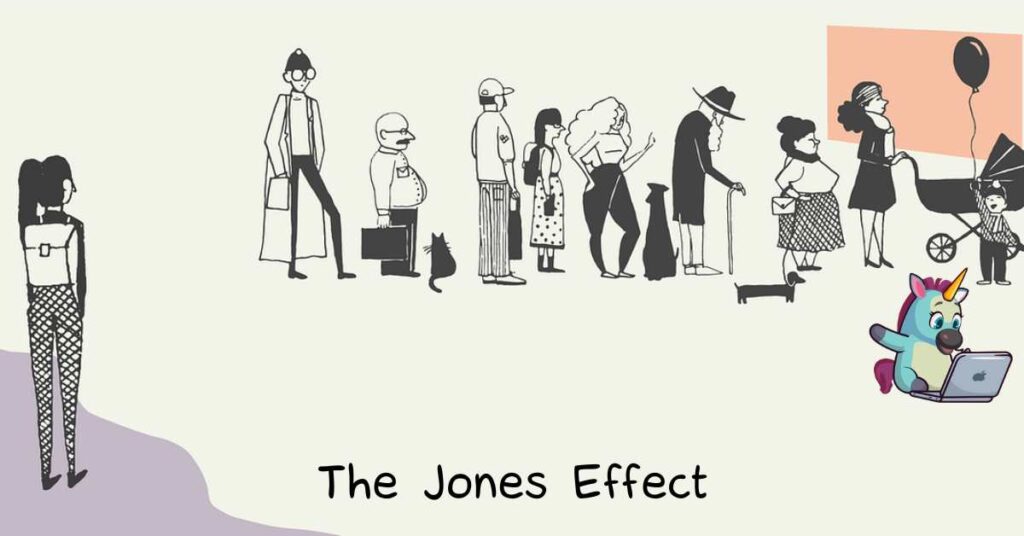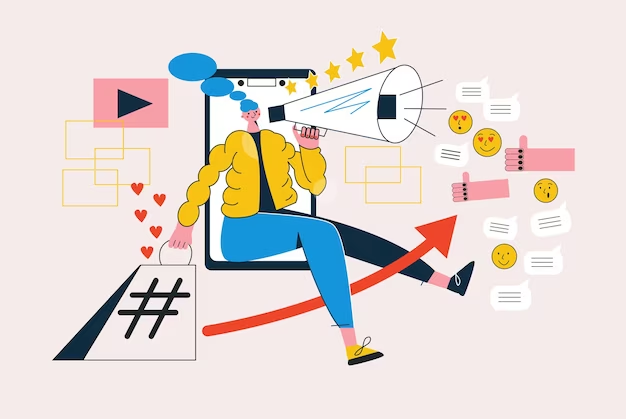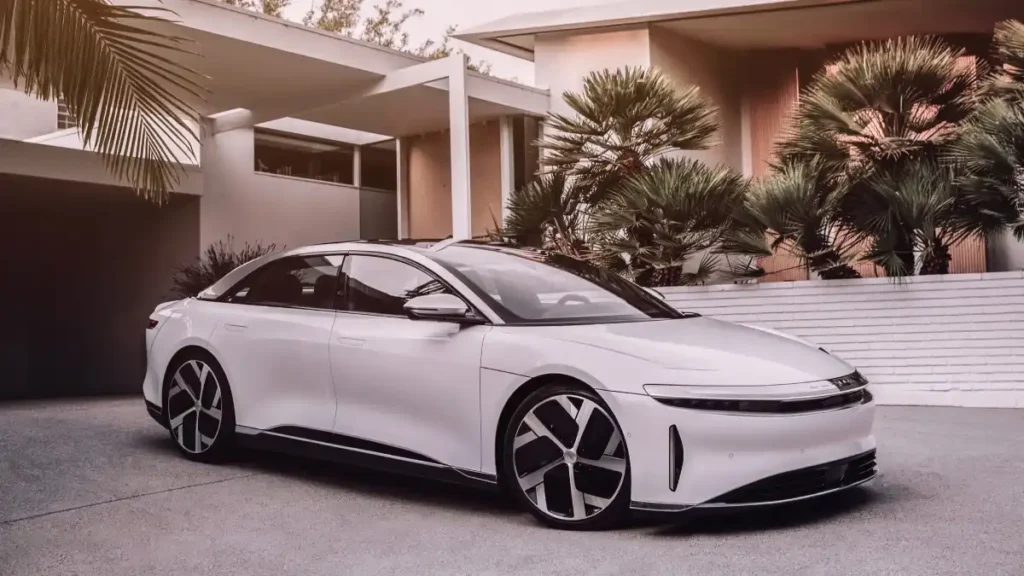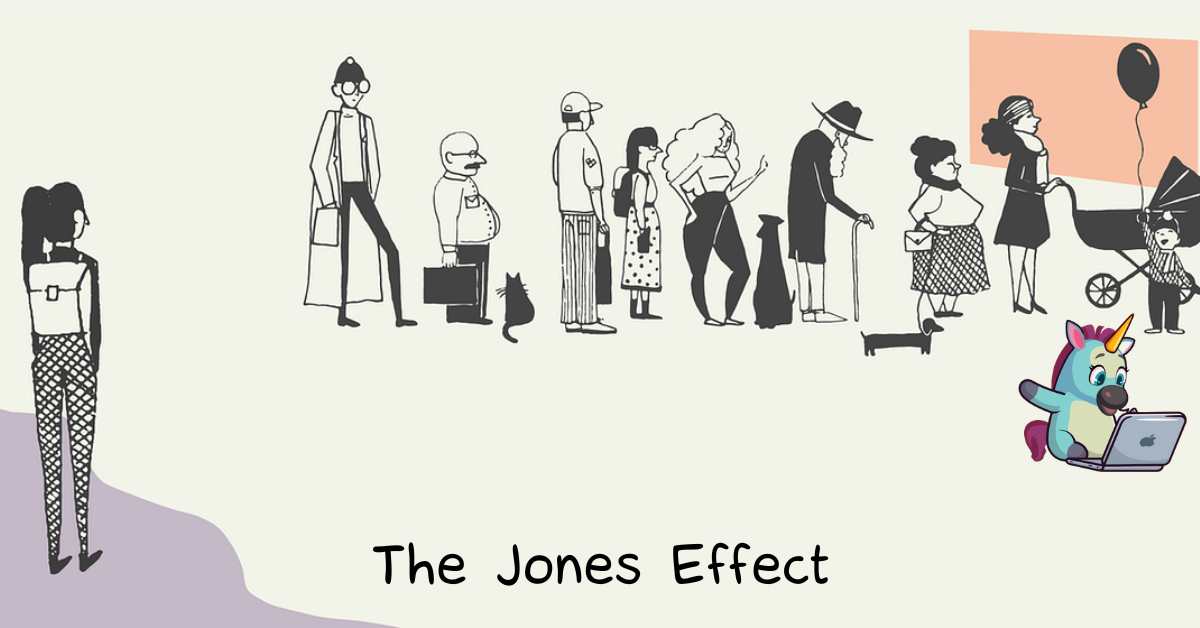
Have you ever envied your neighbor’s new car or dreamed of their luxury vacation photos on social media?
You’re not alone.
This behavior is a prime example of the Jones Effect in action.
But hold on a second…
Why do we constantly desire what others have?
Enter the Jones Effect.
This psychological principle suggests that we often measure our success by comparing ourselves to others, even when it’s not in our best interest.
Marketers and brands capitalize on this tendency to drive consumer behavior and boost sales.
It’s like our brains say, “If they have it, I need it too!”
🧠 The Psychology of the Jones Effect
So, what’s the mental trick behind the Jones Effect?
It all boils down to our innate desire for social status and our fear of being left behind.
When we see others with something desirable, it becomes a benchmark for our own success.
Not having it can make us feel inadequate or less successful, which can be psychologically uncomfortable.
The Jones Effect exploits this psychological tendency by highlighting what others have that we don’t, creating a sense of urgency to acquire it.
⚖️ The Good, the Bad, and the Keeping Up Trap

While the Jones Effect can be a powerful tool for driving consumer behavior, it’s not without its considerations:
On the positive side, a well-executed Jones Effect strategy can:
- Motivate personal growth and improvement
- Drive innovation and progress
- Boost sales and market trends
However, there are also potential downsides to consider:
- It can lead to financial stress and overspending
- May cause feelings of inadequacy and low self-esteem.
- Can result in a never-ending cycle of consumption
🚨 The Effects of Commitment Bias in Digital Marketing

In the world of digital marketing, the Jones Effect can have significant impacts:
Increased Demand: By showcasing what others have, brands can create a sense of urgency and desire.
Social Proof: Highlighting popular products or services can influence others to follow suit.
FOMO Marketing: Creating a fear of missing out can drive quick purchasing decisions.
Influencer Marketing: Leveraging popular figures to showcase products taps directly into the Jones Effect.
🐐 Commitment Bias GOATs
Check out these brands that have mastered the art of leveraging the Jones Effect:
Tesla

Tesla’s exclusivity and high-profile owners create a strong desire for others to join the “club” of electric vehicle owners.

Instagram’s platform is built on sharing and comparing lifestyles, directly tapping into the Jones Effect.
Rolex

Rolex has positioned itself as a symbol of success, making it a coveted item for those looking to showcase their status.
Airbnb

AirBnB’s platform allows users to experience luxurious and unique accommodations, feeding into the desire for aspirational travel experiences.
By studying these examples, understanding the psychology behind the Jones Effect, and considering the potential pitfalls, you can develop a balanced marketing strategy that drives consumer behavior while promoting responsible consumption.
Just remember: in the game of keeping up with the Joneses, it’s all about creating genuine value and aspiration, not just empty envy!


Leave a Reply